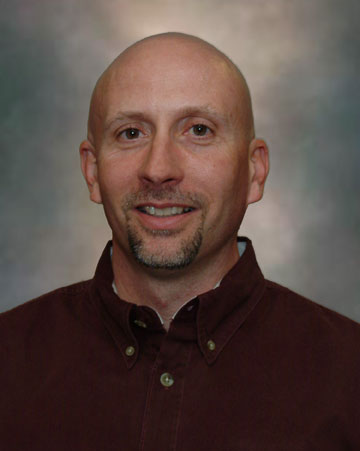P.L. Thomas will speak about the issues of poverty and education reform on the University of Arkansas campus Thursday, Oct. 18. The appearance by Thomas, an associate professor of education at Furman University in South Carolina, is part of the One Book, One Community project at the University of Arkansas.
Thomas is a lifelong educator, having taught high school English in rural South Carolina for 18 years before moving to teacher education at Furman University for the past 11 years. His talk is titled “Poverty Is Destiny: Ignoring the MLK Imperative in Corporate Education Reform.”
He will speak at 7 p.m. in the Graduate Education Building auditorium. The lecture is free and open to the public. David K. Shipler, author of The Working Poor: Invisible in America, the book chosen for this year’s One Book, One Community project, will speak in Fayetteville the following week.
Thomas’ writing and public commentary focuses primarily on the intersection of education, poverty, literacy and politics. He has authored 11 books on education and literacy/literature, co-authored two books, and edited several volumes, including editing a former series for Peter Lang and a current series for Sense Publishers. His newest book, Ignoring Poverty in the U.S.: The Corporate Takeover of Public Education, was published this year by Information Age Publishing.
In the education reform debate, Thomas speaks from the perspective of what he calls Social Context Reform. Social Context Reformers have concluded that the source of success and failure lies primarily in the social and political forces that govern our lives, he wrote in a piece published by The Washington Post last December.
Social Context Reform addresses social inequity broadly and education reform within that larger reform. In an essay published online called “Is Poverty Destiny?” Thomas argues: “In the U.S., poverty is destiny because our social policy ignores at best and perpetuates at worst socioeconomic inequity and because our essential public institutions such as our schools reflect and perpetuate those inequities. Children in the U.S. are more likely to remain in the social class of their births because our public policy and education systems refuse to admit the ‘is’ and then move toward the radical and painful actions that could achieve ‘should not be.’”
He added, “The American meritocracy remains an ideal worth believing in and working for, and Social Context Reformers embrace that goal while also holding fast to the faith that public education can be a powerful mechanism for achieving equity among all humans regardless of race, class, gender, or sexual orientation.”
Following Thomas’ remarks, four panelists – Gary Ritter, holder of the Twenty-First Century Chair in Education Policy, Angela Oxford, director of the Center for Community Engagement, and Ed Bengtson, assistant professor of educational leadership, all with the University of Arkansas; and Marian Riner, Families in Transition Coordinator, Fayetteville School District – will each have five minutes to comment on the lecture. The floor will then be open for questions.
The Brown Chair in English Literacy, Dean Tom Smith of the College of Education and Health Professions and the Center for Children and Youth are sponsoring the lecture.
Contacts
Heidi Wells, director of communications
College of Education and Health Professions
479-575-3138,
